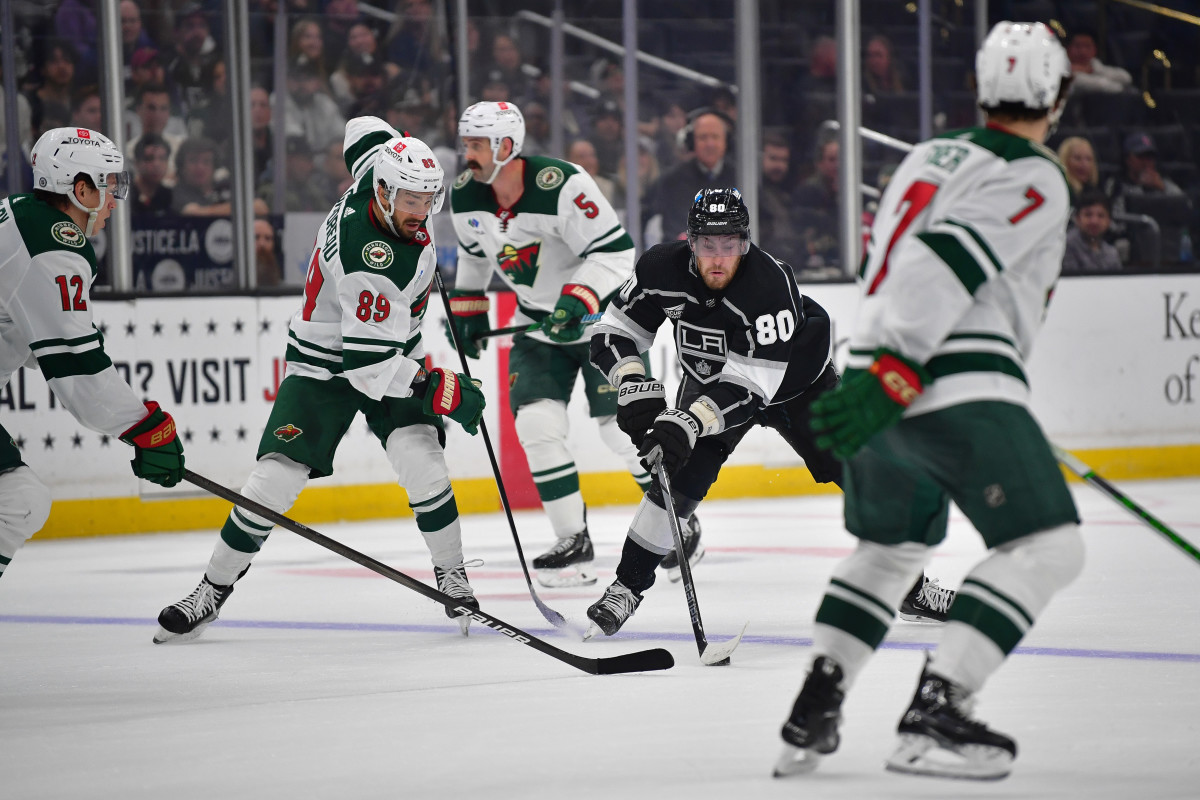If you’re seeking a term to encapsulate the Minnesota Wild’s offseason, “expendable” emerges as a frontrunner. The team confronts a second successive season constrained by a salary cap deflated by $14.7 million due to buyouts of Zach Parise and Ryan Suter. With only about $2 million to address several roster vacancies, the challenge of enhancing a team hovering on the edge of contention looms large.
This predicament necessitates tough decisions. Fans, media, and the front office must weigh who on the roster is dispensable and whom the team can afford to part ways with.
Within this context, two names stand out for potential offseason discussions: Captain Jared Spurgeon and potential Calder Trophy contender Marco Rossi. Spurgeon’s inclusion stems from the significant cap relief his departure could offer, particularly as he recovers from injury and approaches his mid-30s. While there’s no current buzz about his departure, the possibility exists.
Conversely, rumors have swirled around Rossi, fueled by hints from insiders. Despite an impressive rookie season, doubts persist about the Wild’s long-term commitment to him. The team’s recent actions, including signing other players to extensions, suggest Rossi could be on the trading block this summer.
Speculation aside, the crucial question revolves around whether these players are truly expendable. For Spurgeon, recent performance suggests his contributions are pivotal to the team’s success, especially in a tight playoff race. While age and injury concerns exist, historical comparisons offer some reassurance about his potential longevity.

As for Rossi, it’s perplexing that the team would consider parting ways with such a promising young center. Despite a brief scoring drought, Rossi ranks among the team’s top performers in various metrics. The notion of trading him hinges on finding the “right deal,” but given his potential and the team’s lack of depth at center, such a move seems risky.
Furthermore, the importance of elite centers and impact defensemen cannot be overstated in the pursuit of Stanley Cup contention. Trading away such assets, under the guise of surplus, could potentially undermine rather than bolster the team’s prospects. The lessons from teams like the Dallas Stars, who reinforced their center depth to great effect, underscore the value of retaining and enhancing key positions.
In essence, the Wild must carefully weigh the long-term ramifications of any potential trades. While roster adjustments may be necessary, sacrificing core talent risks compromising the team’s competitive aspirations.
